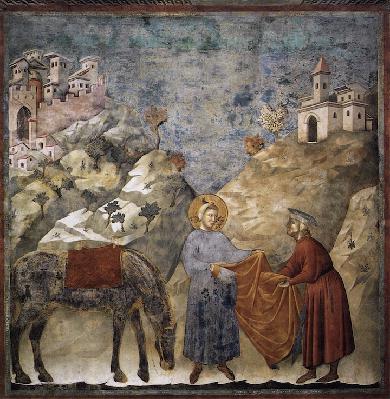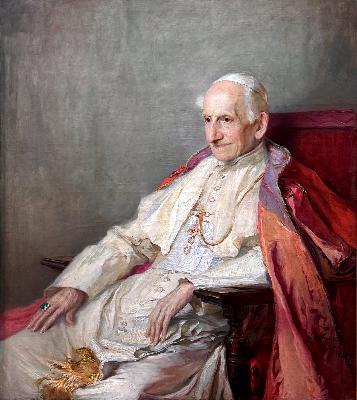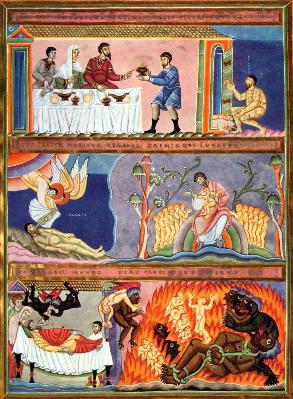What Do We Owe?
Update: 2025-10-14
Description
By Randall Smith.
In the 2005 movie Cinderella Man, based on the life of boxer James J. Braddock, there is a touching scene in which Braddock, having had to take government assistance for a time to support his family, shows up at the public assistance office to give that money back. It was there when he needed it, so now he wants to give it back so it will be there for someone else. It is something nearly impossible to imagine today. Giving money back - so that it's there for others?
At his 1961 inaugural address, John F. Kennedy famously declared: "Ask not what your country can do for you, ask what you can do for your country." It would be unthinkable now, if not considered "fascist."
In Plato's dialogue, the Crito, Socrates's friend Crito tells him that, although he has been condemned to death, government officials will look the other way if his friends bribe the jailers and sneak him into exile in another country. Socrates refuses, telling his friend that, since he was born in Athens, educated in Athens, and has benefited from Athenian law and culture, he owes his existence to Athens and cannot abandon her, even if it means his death.
Consider now the common attitude of the modern college student. The military strength of their country has given them years of peace; its economic strength has made them members of the richest country in history; and that country has spent literally millions of dollars on their education, from free public schools to scholarships and low-cost loans to attend some of the finest colleges and universities in the world. How many live with the conviction that they now owe something - anything - to their country, their community, or their parents? It's not so much that they're opposed; the thought has never occurred to them.
The bulk of today's young people don't go to colleges and universities because they want to develop skills to be of service to their families, to their neighbors, to their city, state, and country. Nor are they recruited that way. They are lured to college to "get ahead," to "be successful," to become "their bold selves," to "be all they can be," to be "the leaders of tomorrow."
Would any contemporary college or university advertise itself as: "Training the servants of tomorrow"? It would be nice if a Christian college or university said something like: "We train our students to serve others, because Christ did." But I fear it would be less popular than, "Come, get yourself on CEO Street!"
This sort of marketing is thought necessary in a culture of expressive individualism. "Expressive individualism," writes author Carter Snead, "takes the individual, atomized self to be the fundamental unit of human reality. This self is not defined by its attachments or network of relations, but rather by its capacity to choose a future pathway that is revealed by the investigation of its own inner depths of sentiment.
No object of choice - whether property, a particular vocation, or even the creation of a family - is definitive and constitutive of the self. In Michael Sandel's words, it is an 'unencumbered self.'" Expressive individualism "does not recognize unchosen obligations. The self is bound only to those commitments freely assumed. And the expressive individual self only accepts commitments that facilitate the overarching goal of pursuing its own, original, unique, and freely chosen quest for meaning."
One sometimes hears the claim, "I'm spiritual but not religious." What this often means is that I don't want to be obligated to anything I haven't chosen. Can one be religious and not patriotic? That's possible, I suppose, if being "patriotic" meant "my country, right or wrong." But not if "being Catholic" means "I owe nothing to my country."
There is nothing in Church teaching that would support such a view. Rather, as St. Augustine understood, although Christians are a "pilgrim people," they will often be - and are called to be - the best citizens, because they are not, like so many...
In the 2005 movie Cinderella Man, based on the life of boxer James J. Braddock, there is a touching scene in which Braddock, having had to take government assistance for a time to support his family, shows up at the public assistance office to give that money back. It was there when he needed it, so now he wants to give it back so it will be there for someone else. It is something nearly impossible to imagine today. Giving money back - so that it's there for others?
At his 1961 inaugural address, John F. Kennedy famously declared: "Ask not what your country can do for you, ask what you can do for your country." It would be unthinkable now, if not considered "fascist."
In Plato's dialogue, the Crito, Socrates's friend Crito tells him that, although he has been condemned to death, government officials will look the other way if his friends bribe the jailers and sneak him into exile in another country. Socrates refuses, telling his friend that, since he was born in Athens, educated in Athens, and has benefited from Athenian law and culture, he owes his existence to Athens and cannot abandon her, even if it means his death.
Consider now the common attitude of the modern college student. The military strength of their country has given them years of peace; its economic strength has made them members of the richest country in history; and that country has spent literally millions of dollars on their education, from free public schools to scholarships and low-cost loans to attend some of the finest colleges and universities in the world. How many live with the conviction that they now owe something - anything - to their country, their community, or their parents? It's not so much that they're opposed; the thought has never occurred to them.
The bulk of today's young people don't go to colleges and universities because they want to develop skills to be of service to their families, to their neighbors, to their city, state, and country. Nor are they recruited that way. They are lured to college to "get ahead," to "be successful," to become "their bold selves," to "be all they can be," to be "the leaders of tomorrow."
Would any contemporary college or university advertise itself as: "Training the servants of tomorrow"? It would be nice if a Christian college or university said something like: "We train our students to serve others, because Christ did." But I fear it would be less popular than, "Come, get yourself on CEO Street!"
This sort of marketing is thought necessary in a culture of expressive individualism. "Expressive individualism," writes author Carter Snead, "takes the individual, atomized self to be the fundamental unit of human reality. This self is not defined by its attachments or network of relations, but rather by its capacity to choose a future pathway that is revealed by the investigation of its own inner depths of sentiment.
No object of choice - whether property, a particular vocation, or even the creation of a family - is definitive and constitutive of the self. In Michael Sandel's words, it is an 'unencumbered self.'" Expressive individualism "does not recognize unchosen obligations. The self is bound only to those commitments freely assumed. And the expressive individual self only accepts commitments that facilitate the overarching goal of pursuing its own, original, unique, and freely chosen quest for meaning."
One sometimes hears the claim, "I'm spiritual but not religious." What this often means is that I don't want to be obligated to anything I haven't chosen. Can one be religious and not patriotic? That's possible, I suppose, if being "patriotic" meant "my country, right or wrong." But not if "being Catholic" means "I owe nothing to my country."
There is nothing in Church teaching that would support such a view. Rather, as St. Augustine understood, although Christians are a "pilgrim people," they will often be - and are called to be - the best citizens, because they are not, like so many...
Comments
In Channel
























